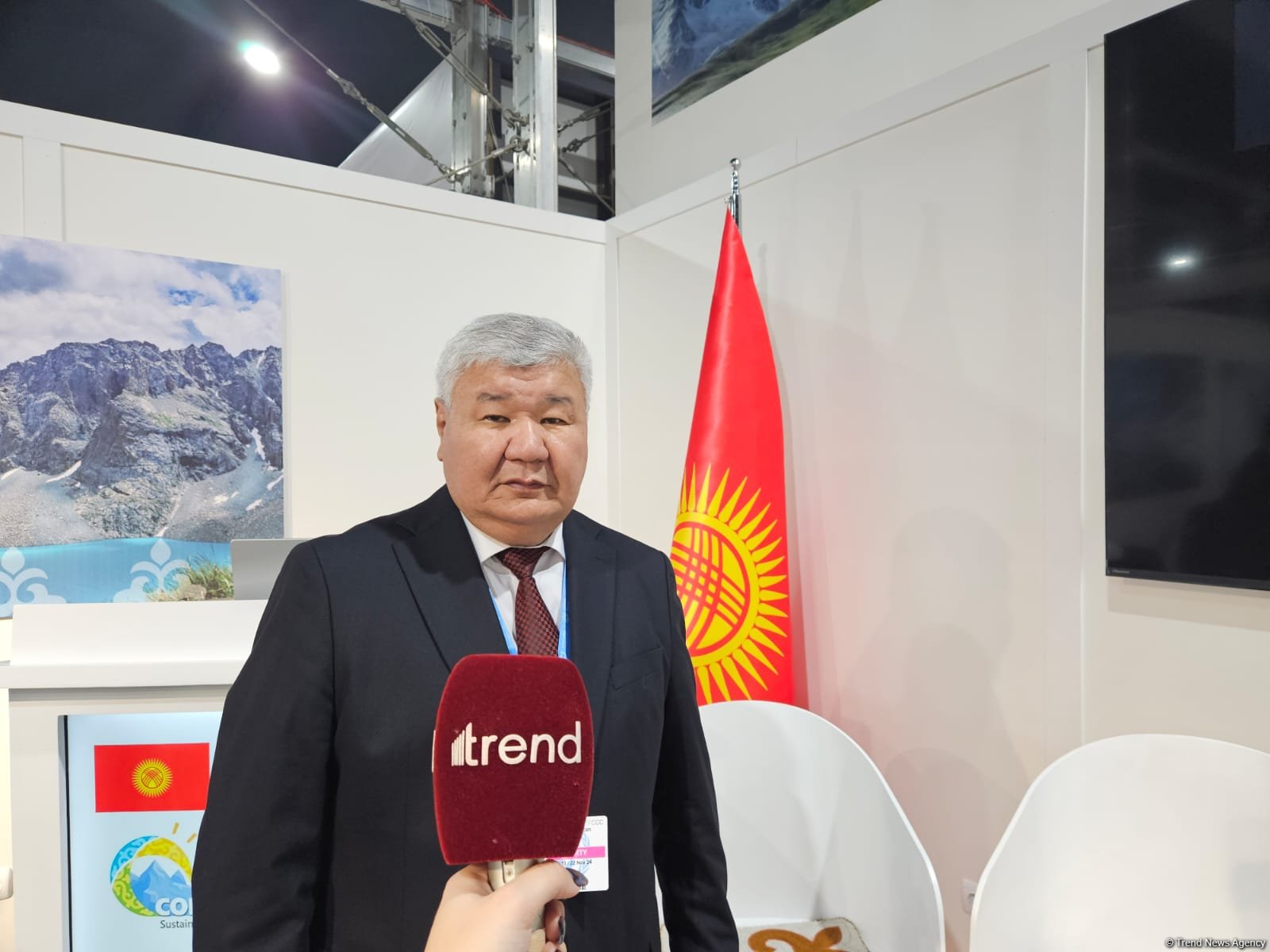BAKU, Azerbaijan, November 14. Kyrgyzstan is expressing interest in a project to lay a cable line across the Caspian Sea to enhance energy exchange in the region, Minister of Energy Taalaibek Ibraev told Trend on the sidelines of COP29 in Baku.
The Kyrgyz Minister underscored the significance of energy collaboration in Central Asia, pointing out that Kazakhstan, Uzbekistan, and Azerbaijan are all in the same boat, working hand in hand on the cable project across the Caspian. Kyrgyzstan, with its strong energy connections to both Kazakhstan and Uzbekistan, sees this project as a golden opportunity, as it would boost energy exchange and tackle the regional energy security hurdles head-on.
"Central Asia today operates within an energy ring, and for us in Kyrgyzstan, this is crucial, as we have established connections with the energy systems of Kazakhstan and Uzbekistan. We both export and import electricity, making this project highly promising for us," Ibraev said.
He also noted that Kyrgyzstan is advancing several hydro-energy projects, including the construction of the 1,860-megawatt Kambarata HPP-1. This large-scale project aims to solve water and energy issues not only for Kyrgyzstan but also for its neighbors, Kazakhstan and Uzbekistan. The World Bank is already backing the project, and next year, the ministry will begin selecting contractors for its implementation.
"This megaproject will be a crucial step in addressing water and energy challenges for the three countries. I believe that by spring next year, we will begin the tender process for selecting a contractor and project developer. Construction of the hydroelectric station will follow immediately after that," the minister added.
Minister Ibraev further shared that Kyrgyzstan continues to develop small hydroelectric power plants and renewable energy projects, including solar and wind farms across the country, such as in Issyk-Kul, Naryn, and the southern regions. The ministry is currently working on solar power projects with a total capacity of 1,500 MW, with several companies already planning their construction.
"We plan to start one of these projects this year, and by the end of 2025, the first solar plants will be operational. This will not only be in the Issyk-Kul region but also in other areas, including the southern and northern parts of the country," he added.
Stay up-to-date with more news on Trend News Agency's WhatsApp channel







